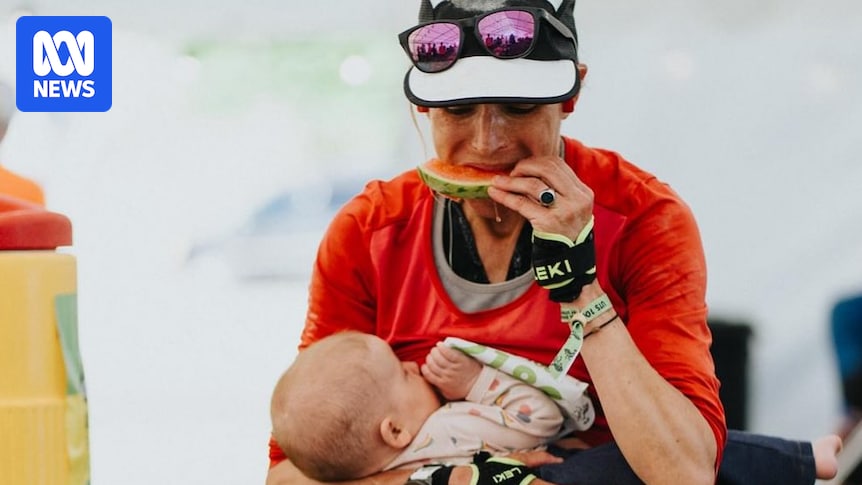
Completing a 100-kilometre ultramarathon is a formidable challenge. Winning it is even harder. Achieving victory after starting 30 minutes later than the rest of the field seems nearly impossible. Yet, Stephanie Case accomplished this remarkable feat earlier this week, all while breastfeeding her six-month-old baby.
Case, a human rights lawyer with the United Nations, had been absent from competitive trail running for three years due to her fertility journey. After experiencing recurrent miscarriages and multiple IVF failures, she gave birth to her daughter, Pepper, last November. Her story is a testament to resilience and determination, encouraging other mothers to “sign up for big things” even after facing significant personal challenges.
The Journey to Victory
Starting 30 minutes after the “elite” field, Case embraced the opportunity to run her own race without the pressure of expectations. Her partner, John Roberts, supported her at various aid and refuelling stations, bringing along Pepper for feedings while Case refueled herself. “While it broke my heart to leave little Pepper at the aid stations, I wanted to show her — both of us — how amazing mom runners can be,” Case shared.
Almost 17 hours after beginning Britain’s largest ultramarathon, Case crossed the finish line, only to be met with a surprise. “Being 30 minutes back meant that the race organisers needed to check the chip time,” she recounted on social media. “I WON?!? I think I repeated it ten times.”
“I WON?!? I think I repeated it ten times.” — Stephanie Case
Preparation and Support
Case’s achievement was not just a personal triumph but also a testament to careful preparation and expert guidance. She collaborated with coach Dr. Megan Roche, a specialist in female athlete science at Stanford University, to ensure her training was safe and healthy postpartum. Her time of 16 hours, 53 minutes, and 22 seconds made her the fastest woman in the field, finishing four minutes ahead of second-placed Brit Lauren Graham.
At 42, Case acknowledges that her story, while inspiring to many, might be daunting to others. She emphasizes the importance of listening to one’s body and expert advice, especially postpartum. “I’m lucky to be physically okay after childbirth, although it’s taken a lot of pelvic floor work. Others aren’t so lucky,” she admitted.
“There is no ‘comeback’ after childbirth. There is just the next phase. And whatever it looks like, whether on or off the trail, it’ll be right for YOU.” — Stephanie Case
Implications for Women in Sports
Case’s victory in Snowdonia is not just a personal milestone but also a significant moment for women in sports, highlighting the potential for mothers to achieve exceptional feats. Her story aligns with broader discussions about the role of exercise during and after pregnancy. While exercise is encouraged, navigating the prenatal and postpartum periods can be challenging for many.
Her success also comes at a time when the ABC Elite Athletes in Australian Women’s Sport Survey, in partnership with Deakin University, seeks to understand the experiences of female athletes. Case’s journey underscores the importance of supporting women athletes through various life stages, including motherhood.
As Case prepares for her next challenge, the Hardrock Endurance Run in Colorado, her story continues to inspire. She urges other mothers to pursue their passions and redefine what is possible postpartum. “There is no ‘comeback’ after childbirth. There is just the next phase,” she said, emphasizing that each journey is unique and valid.
Stephanie Case’s triumph at Snowdonia is a powerful reminder of the strength and potential within every individual, regardless of the challenges they face. Her story not only celebrates athletic achievement but also champions the resilience and determination of mothers everywhere.





